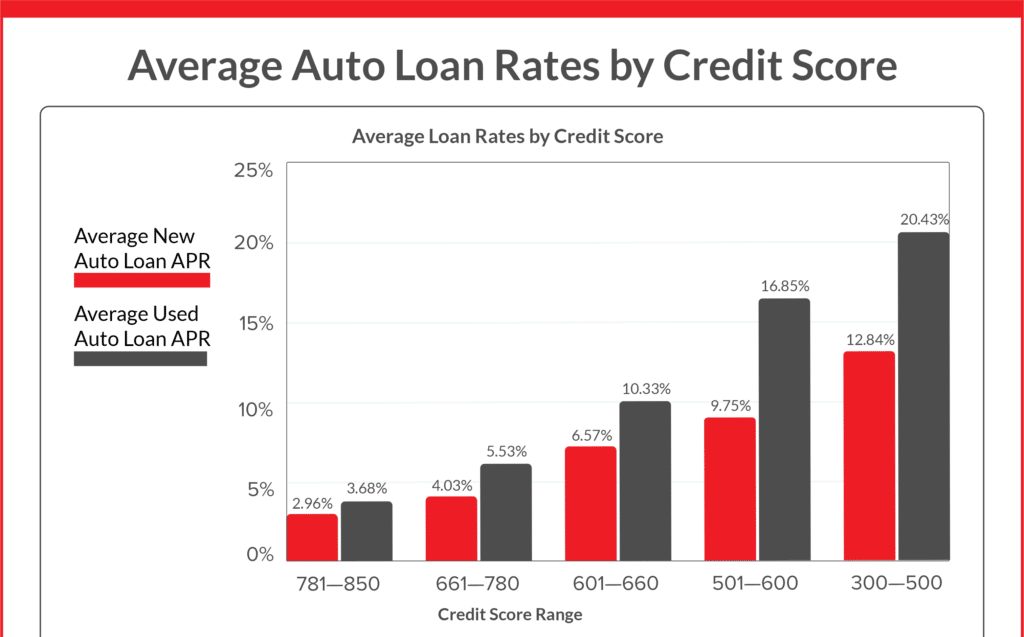Does financing a car build credit?
This is one question that arises every time you go for a loan. Your credit card is essentially a loan. It is a line of credit you use responsibly, and it forms the backbone of your credit history. If you have been making timely payments, you are already building excellent credit. Taking out a car loan just to boost your score is unnecessary and costly.
I never drew a car loan, yet I have a 840 FICO credit score. This excellent rating qualifies me for the top loan rates there are, and does not require any car loan to gain it.
Well, how would I go on to achieve an excellent credit rating without taking up a car loan? Understand and focus on what makes up a credit rating which is composed of five essential factors and the smart use of a credit card.
Is Car Loan Good for Credit Score – 5 Factors to Determine
Payment History (35% of Your Score)
Do you make on-time payments?
Have you ever been late? If so, how many days?
Payment history is the biggest factor, at 35% of your score. To win here, never miss a payment. Set up automatic payments to make sure you never are late.
Utilization Ratio (30% of Your Score)
How much of your available credit do you use?
The utilization ratio is just the amount your balance is compared against your credit limits. You always want to use up less than 20% of all available credit given.
For instance, if you have a $1,000 credit limit, try to keep your balance below $200 at any given time, even if you pay the balance in full each month. Credit bureaus often check balances before the billing cycle ends, so paying weekly instead of monthly can help keep your utilization ratio low.
Length of Credit History (15% of Your Score)
How old are your credit accounts?
The older your accounts, the better your score. Opening a new loan reduces the average age of your credit accounts, which can lower your score temporarily.
Best practice: Keep old accounts open, even if you do not use them. Consider using older credit cards for small recurring bills, like a streaming subscription, and set up autopay.
New Credit (10% of Your Score)
Have you recently applied for new credit accounts?
Applying for new credit too often, especially in a short period, can damage your score. Each hard inquiry lowers your score temporarily because it indicates a possible risk to lenders.
Best practice: Do not apply for new credit within six months of a major financial action, such as a mortgage application.
Types of Credit (10% of Your Score)
Do you have a mix of credit types?
Credit agencies classify credit into two types:
- Installment Credit: Fixed monthly payments (such as car loans, mortgages, and student loans).
- Revolving Credit: Flexible monthly payments with changing balances (like credit cards).
Having a balance of both kinds can help increase your score slightly, but this only counts for 10% of the whole. It is just not worth accumulating unnecessary debt just for this slight factor.
How a Car Loan Hurts More Than It Helps
A car loan hurts your multiple credit score factors:
- It introduces a new line of credit, which lowers the average age of your accounts.
- It increases your debt load unnecessarily.
- It incurs interest payments, which means you are paying money you could avoid spending.
Since 90% of your score depends on payment history, utilization ratio, and credit length, which you can achieve through responsible credit card use, a car loan becomes a wasteful expense.
The Smarter Way to Build Credit
Here is how you can build great credit without an auto loan:
- Carry a few credit cards: Stick with one or two of the oldest credit cards you have.
- Pay in full and on time: Set up automatic payments to make sure you never miss a due date.
- Keep utilization low: Use less than 20% of your available credit. Even consider paying credit card balances weekly instead of monthly.
- Avoid New Debt: Do not open unnecessary credit accounts or loans.
- Hold Onto Older Accounts: Keep old credit cards open, even if you rarely use them.
Final Verdict: Skip the Car Loan
Taking out a car loan to build your credit score is a financial mistake. Focus on the proven methods above to build and maintain excellent credit while keeping your hard-earned cash working for you, not against you.

